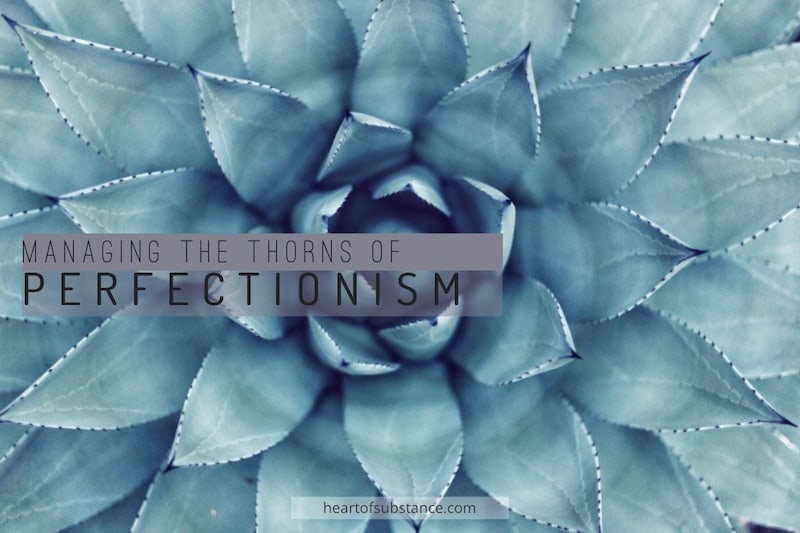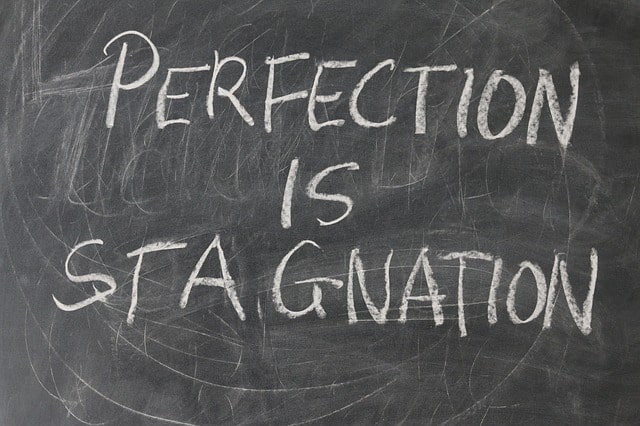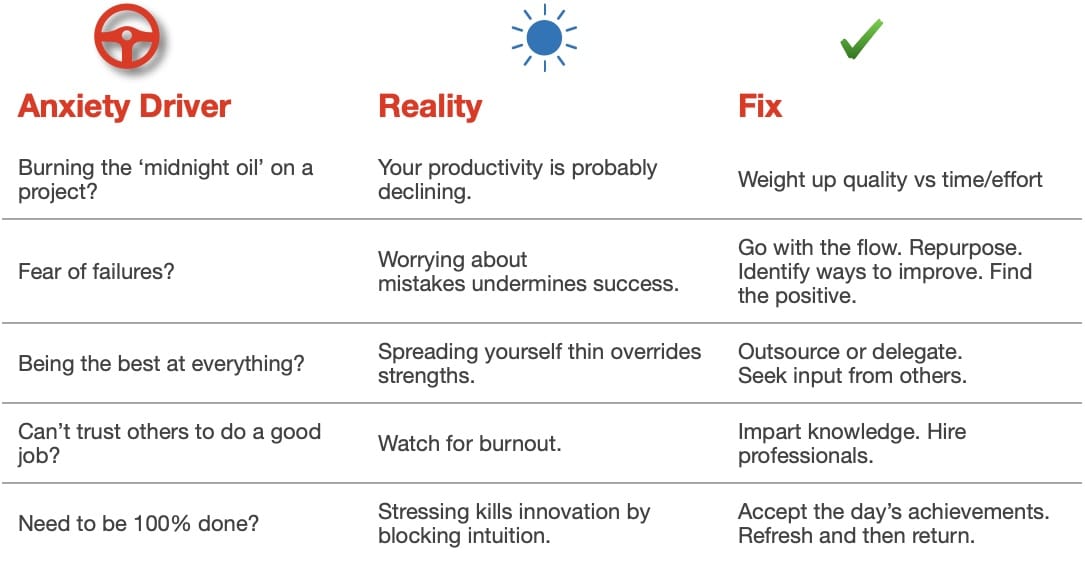Being a perfectionist ain’t all bad. But, there are known problems with having such a trait.

To be honest, I don’t like labels, including ones ending in -ists, as it does little to acknowledge the breadth and depth of a person’s being. So, let’s go with the concepts of perfection and perfectionism rather than a perfectionist.
Are you a perfectionist? Rate yourself against the Almost Perfect Scale (pdf) of rating perfectionism. I also wrote an article about some tell-tale signs of perfectionism.
The Strive For Perfection
Let’s face it…We are all drawn to perfection. For example, most people give greater value to:
- The flawless skin and trim figure
- The perfect wedding
- Perfectly accessorized outfits
- Perfect images for more Instagram likes
- The perfect post on FB to attract the most likes
- The ‘wow!’ house on the block
- The flashiest vehicle
- The best of …!
Who are we kidding?! Perfectionism is omnipresent and we all enjoy its fruits.
Seeking perfection can end in excellence and outstanding results and this can be a good thing.
But… is perfection the enemy of progress? Let’s look at some famous perfectionists.
Practice makes (almost) perfect, mistakes happen.
Deborah van der Schaaf, Dutch illustrator
Think of all the outstanding progress due to people we refer to as ‘perfectionists’.
Steve Jobs and Michelangelo, for example, among others I’ve listed. They are renowned for giving the world extraordinary things!
So, allow yourself applause if you have been labeled a perfectionist because you are part of a group of people with special qualities.

The Problem with Perfection
So, what’s the problem!?
People who strive for perfection tend to have high expectations and when these are not met, they can:
- Feel let down
- Can binge on stuff to make them feel better
- Can be disturbingly critical of themselves and others
- May sabotage relationships because of inner fear of not being good enough
- Suffer from depression and anxiety (momentarily or for long periods)
The problem: the downsides, the tendencies when something is just not ‘right’, not good enough.

Perfectionism And Anxiety
I wrote about the Perfection-Anxiety cycle, sharing tips on how to break free from it.
In psychology, perfectionism can be either, adaptive (healthy) or maladaptive (unhealthy), according to the mainstream theory about it. 1
In this dual model, the maladaptive type is associated with anxiety.
Recent research, however, shows anxiety affects the adaptive types also in one form or the other. In this premise, rather than the dual concept, the researchers class perfectionists as either socially prescribed, other-oriented, or self-oriented.2
What causes Perfectionism?
It was once thought nurture rather than nature produced the trait of perfectionism.
Yes, parents were blamed for producing offspring who were perfectionists by how they raised their child in that they overemphasized achievement or made their love conditional.
Well of late that’s been shown to be hooey phooey. Based on a study of twins, research shows the reason is likely hereditary.3 From my own experience, that makes perfect sense.
Overcoming Perfectionism Anxiety
So, it seems perfectionism and anxiety go hand in hand.
We see this in a wanting only for the ‘perfect’ where a mindset of being less than perfect equates to failure, rejection, having lost opportunities, a loss of status, or worst. You can imagine the anxiety that would accompany the fear of failure and the like.
Such a mentality overlooks the plethora of opportunities and beauty in the ‘not-so-perfect’ not to mention the hurtful implications.
Rather than wondering how to get rid of perfectionism, maybe there’s a way to manage the downsides so that the upsides shine. There is such a thing as healthy perfectionism.
The essence of being human is that one does not seek perfection.
George Orwell (1903-1950), English author and critic
My ‘How to cope with perfectionism anxiety’
First, what is driving your anxiety? What’s the reality? What’s the fix…

How do I stop being a perfectionist?
Here’s how to manage the downsides of perfectionism…
1. Diversify or broaden scope of attention
As a perfectionist, you’re probably good at analyzing to the point you may be over-analysing — stuck because you are obsessing about the one thing.
This is about diversifying your spectrum of focus. It helps to look beyond your ‘pet’ project at times to gain an objective perspective, to stay balanced.
2. Make mental space for creativity
I found taking time away from a project allows space for new insights and those ah-ha moments to arrive. I wrote about this in my article on Using Intuitive Thinking in Decision Making.
Take the time-out from doing and just be, to recharge.
If you don’t take time out, you may be dealing with feeling overwhelmed, which ultimately interferes with reaching goals.
3. Celebrate / Reward what you’ve already achieved
Make a conscious effort to celebrate wins, no matter how small. Plan rewards. Commit to experiencing them.
4. Get Outdoors to de-stress
Soak up a little sunshine (avoid sunburn) for vitamin D to keep mentally and physically at your best.
Remember, everything in nature is perfect in its design. What better place to be inspired?

5. Meditate
Learn to meditate for a few minutes daily to help de-stress and to invite intuition and creativity. See my article on developing the art of intuition through meditation.
Meditation helps with reducing anxiety.
6. Incorporate music and laughter
Play uplifting or calming music, whatever works.
Learn to laugh at yourself and with (not at) others. Fake laughter is perfectly fine. But, be wary of cynicism, sarcasm, and teasing – not the perfect humor in this case.
7. Put Your Inner Critic On Hold
Is that inner voice supportive and guiding you in fulfillment; or is it critical, anxious, deflating, obsessive, and tugging at urgency?
Never bash yourself up over mistakes. Reflect on the evidence of your past achievements and look ahead at how you can learn from the mistake or repurpose it.
Your inner speak can be a tell-tale sign of unhelpful perfectionism traits. Subdue that inner negative critic.
Here are some tips to help:
- Accept you are human. Mistakes are necessary for learning.
- Make a mental note of what you would do differently next time.
- Celebrate your strengths, rather than your shortcomings.
- Don’t compare yourself to others. They have their own journey and own mistakes.
- Focus on the progress rather than the ‘not yet done’ or ‘not good enough’.
- Adjust your plan accordingly.
8. Be Flexible and Willing
Apart from being aware of your self-talk, be open and tolerant.
Here are some thoughts on that:
- Aim for a win-win situation.
- Know, it’s impossible to make everyone happy.
- Give credit where credit is due.
- Be humble and accept help and insights from others.
Realize when you need to expect less of yourself (and others), and let up every now and then.
9. Trust
Don’t sweat the small stuff.
Trust others to take over the reins. Free yourself of unnecessary detail. Delegate, organize, and let go.
Show that you care by transferring your skills and knowledge. In this way, you can delegate with confidence and relieve some of the pressure on solely you.
10. Accept Variation
Don’t obsess with the one perfect solution or way of doing things. Consider that no one single outcome is the perfect solution.
Use your ideals as guides, not absolutes.
Accept there can be multiple ways of achieving one thing.
Your solution may be perfect for a time, place, or situation, for a short while, a long while, evermore, or not at all.
Accept that you might need to change your attitude or behavior.
Shift your mindset of ‘all or nothing’ to it’s good enough. You could try the 80/20 rule.
11. Practise patience
Everything is important and everything must be done, eventually …perhaps.
Decide on a period for a project and move on after the time has expired.
Cut yourself some slack and rejig the deadline – in our competitive society proposals tend to underestimate the time to win approval.
Watch for burnout, to which perfectionists at especially prone.
Check out The 80/20 Principle: The Secret to Achieving More with Less, for further insight.
12. Overcome hidden fears
The root cause behind excessive perfectionism is fear. Live and Dare runs a program to address and reprogram the patterns behind perfectionism and procrastination. The online training covers the principles, tricks, and techniques needed to overcome feelings of anxiety, worry, and the ‘not good enough mindset’ that is associated with perfectionism. Check it out…
Bottom Line on How to Deal with Perfectionism…
- Being a perfectionist has its ups and downs.
- Remember, everything is perfect in its own way.
- Furthermore, not all areas are equal.
Look…
Work, relationships, and social and study components of your life require different approaches. I can’t emphasize this enough…watch for burnout.
A certain level of perfectionism is needed for that outstanding work in your project.
But…You’ll need to cut some slack at home with the family. They are probably wondering how to live with a perfectionist.
See my article on daily habits to rid fear and help you win in life.
Remember…a perfectionist out-of-hand (verging on Neurotic Perfectionism)4 looks like this:
- Demands an oft unattainable level of performance in themselves (and often others).
- Feels their efforts or that of others who work for them are substandard.
- Is unable to let go, and has difficulty sleeping or relaxing.
- Obsessively compare their efforts and attributes with others.
- Is highly critical.
- Bases their self-worth entirely on achieving perfect end results.
One being true to Self (capable of the outstanding) or overcoming neuroticism, is:
- Setting realistic standards,
- Deriving pleasure from painstaking labours, but choosing a less precise course when the situation calls for it.
- Incorporating practices to fortify self-esteem.
References:
- Biding, P. J., Israeli, A., & Antony, M. M. (2004). Is perfectionism good, bad, or both? Examining models of the perfectionism construct. Personality and Individual Differences. 36 (6), 1373-1385.
- The many faces of perfectionism
- Iranzo-Tatay, Carmen & Gimeno-Clemente, Natalia & Barberá, María & Ángeles Rodriguez-Campayo, Mª & Rojo-Bofill, Luis & Livianos, Lorenzo & Beato Fernandez, Luis & Vaz-Leal, Francisco & Moreno, Luis. (2015). Genetic and environmental contributions to perfectionism and its common factors. Psychiatry Research. 230. 10.1016/j.psychres.2015.11.020.
- Hamachek, D.E. (1978). Psychodynamics of normal and neurotic perfectionism. Journal of Human Behavior, 15(1), 27–33.
Before you go…
Positive and negative outcomes are associated with perfectionism. Getting to understand perfectionism better helps us win at life and relationships. Read my next article covering worthwhile reads on perfectionism:
Good Books on Perfectionism




